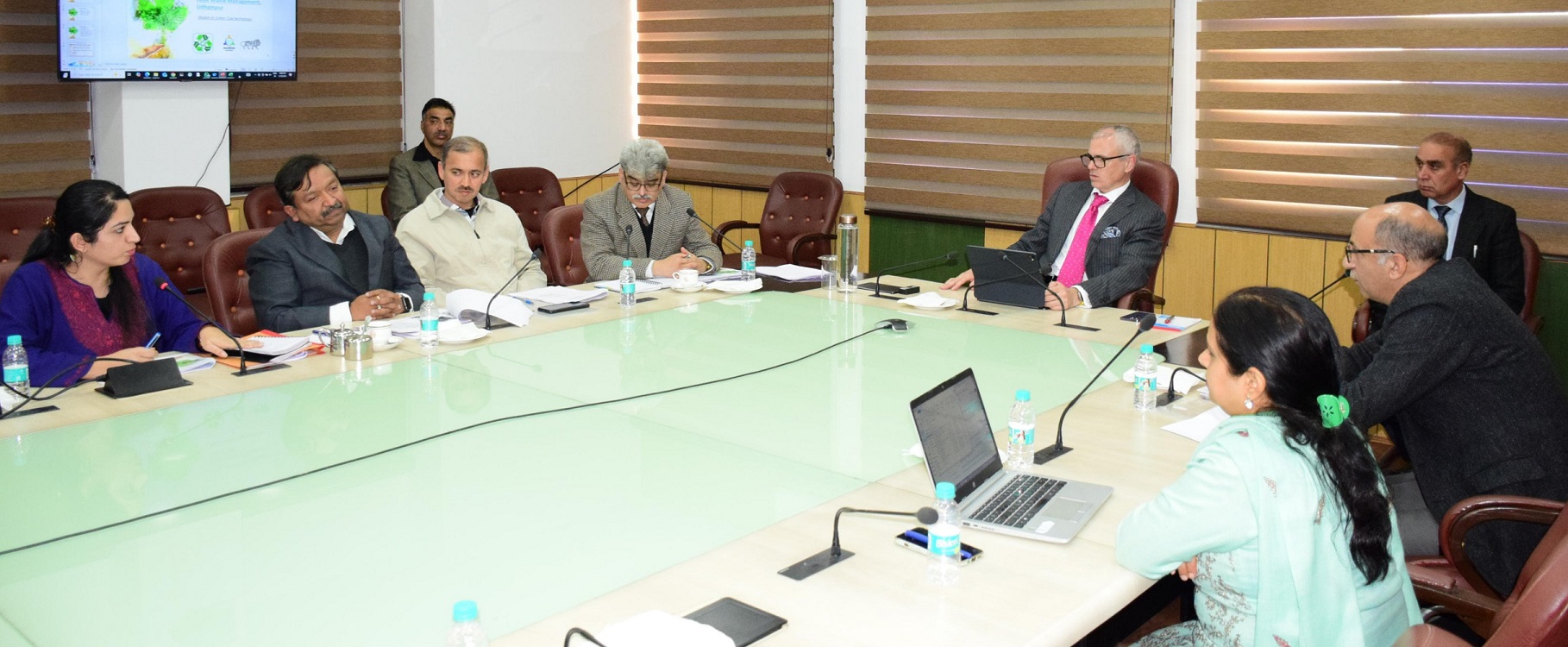JAMMU, Jan 15: Chief Minister Omar Abdullah held a series of meetings today to evaluate and discuss the implementation of proposed urban planning strategies aimed at transforming the urban landscape of Jammu and Kashmir for more organized development in urban areas.
During the discussions, the Chief Minister received briefings on the Land Pooling Policy, including its background, guiding principles, and goals. This policy encourages developers and private landowners to join forces to pool their land for authorized development.
When granting development approvals, urban governance agencies will reserve sufficient land for infrastructure, including wide roads, parks, and other amenities, while returning the remaining land to the owners to share proportionally. The land pooling initiative is expected to increase land value for owners and enhance infrastructure compared to fragmented plots.
This approach aims to facilitate infrastructure development sustainably, serving as an alternative to traditional land acquisition methods, benefiting both the government and various stakeholders, like individual landowners and real estate developers.
The meeting also covered the Transferable Development Rights (TDR) Policy, discussing its key features and aims. The use of TDR for preserving heritage properties while allowing urban expansion was a significant point of discussion. Under this scheme, landowners or developers who surrender land for public purposes, such as road widening or conservation efforts, will receive non-financial compensation in the form of TDR certificates. These certificates specify the Built-Up Area (BUA) or Floor Area Ratio (FAR) that can be utilized on their remaining property or sold to other developers.
The concept of Transit-Oriented Development (TOD) was highlighted as well, focusing on its objectives of promoting sustainable urban mobility and fostering planned development around public transport stations. TOD provisions aim to create compact, walkable urban areas surrounding transit hubs.
Additional discussions centered on Integrated Solid Waste Management (ISWM) services for municipalities and urban local bodies throughout Jammu and Kashmir. Presentations from the Housing & Urban Development department outlined strategies for the efficient collection, transportation, and processing of solid waste.
The Chief Minister urged the Housing & Urban Development Department to kickstart implementation projects under Land Pooling, TDR, and TOD, showcasing successful models to build stakeholder confidence in these urban planning strategies for comprehensive urban development.
The meeting also covered waste disposal facility management, road cleanliness, and the maintenance of water bodies through Public-Private Partnerships (PPP). A presentation highlighted the solid waste management challenges in Udhampur district, including landfill overflow and blocked drainage systems, prompting discussions on waste segregation, recycling solutions, and pollution control measures.
Representatives from the National Bank for Financing Infrastructure and Development (NaBFID) also provided insights, focusing on infrastructure development projects across Jammu and Kashmir.
Attendees included Advisor to the Chief Minister Nasir Aslam Wani, Chief Secretary Atal Dulloo, Additional Chief Secretary to the CM Dheeraj Gupta, Principal Secretary Finance Santosh D Vaidya, Commissioner Secretary Housing & Urban Development Department Mandeep Kaur, along with other senior officials. Officers stationed in Srinagar participated via video conferencing.


Leave a Reply